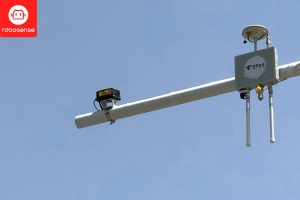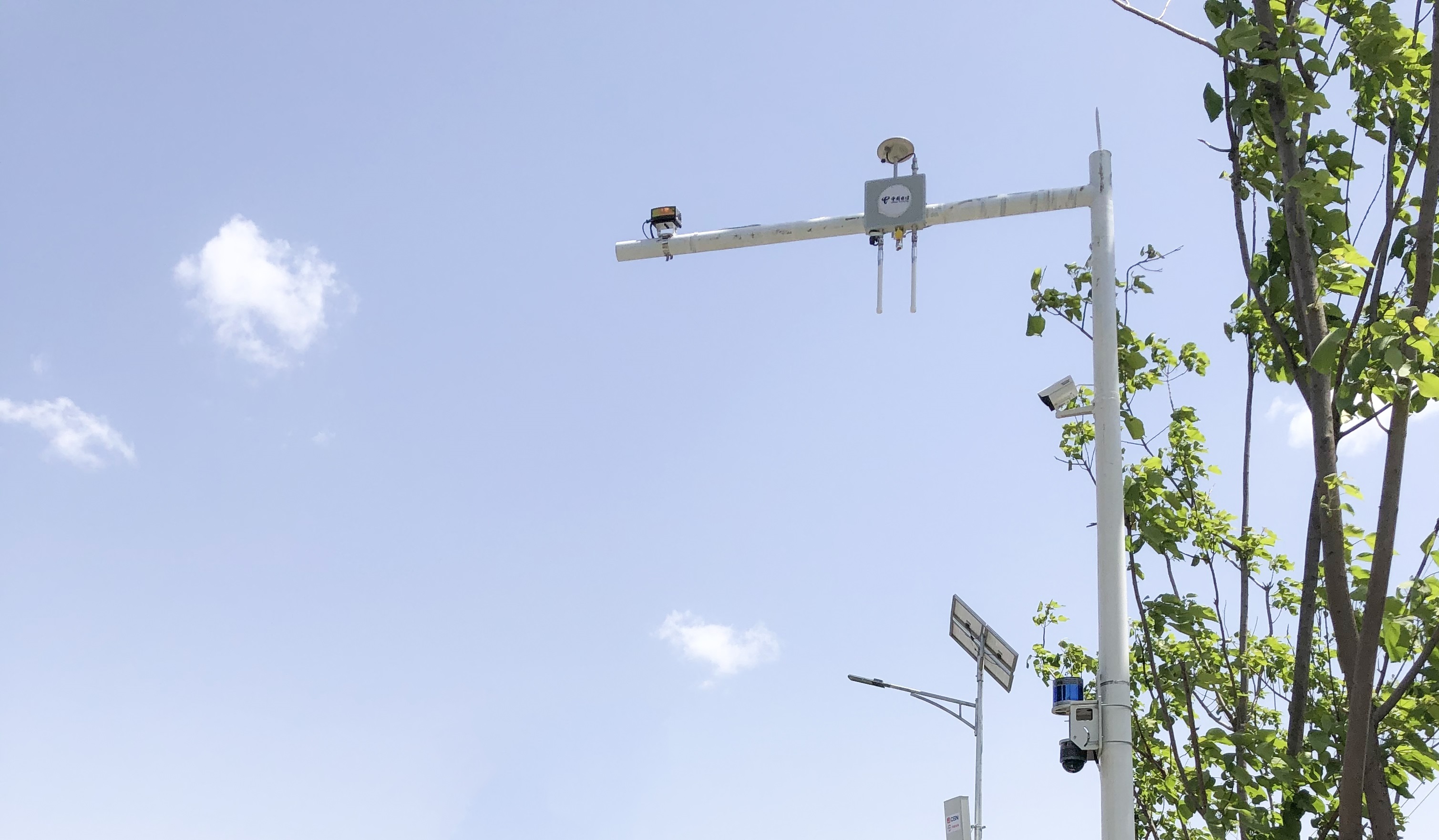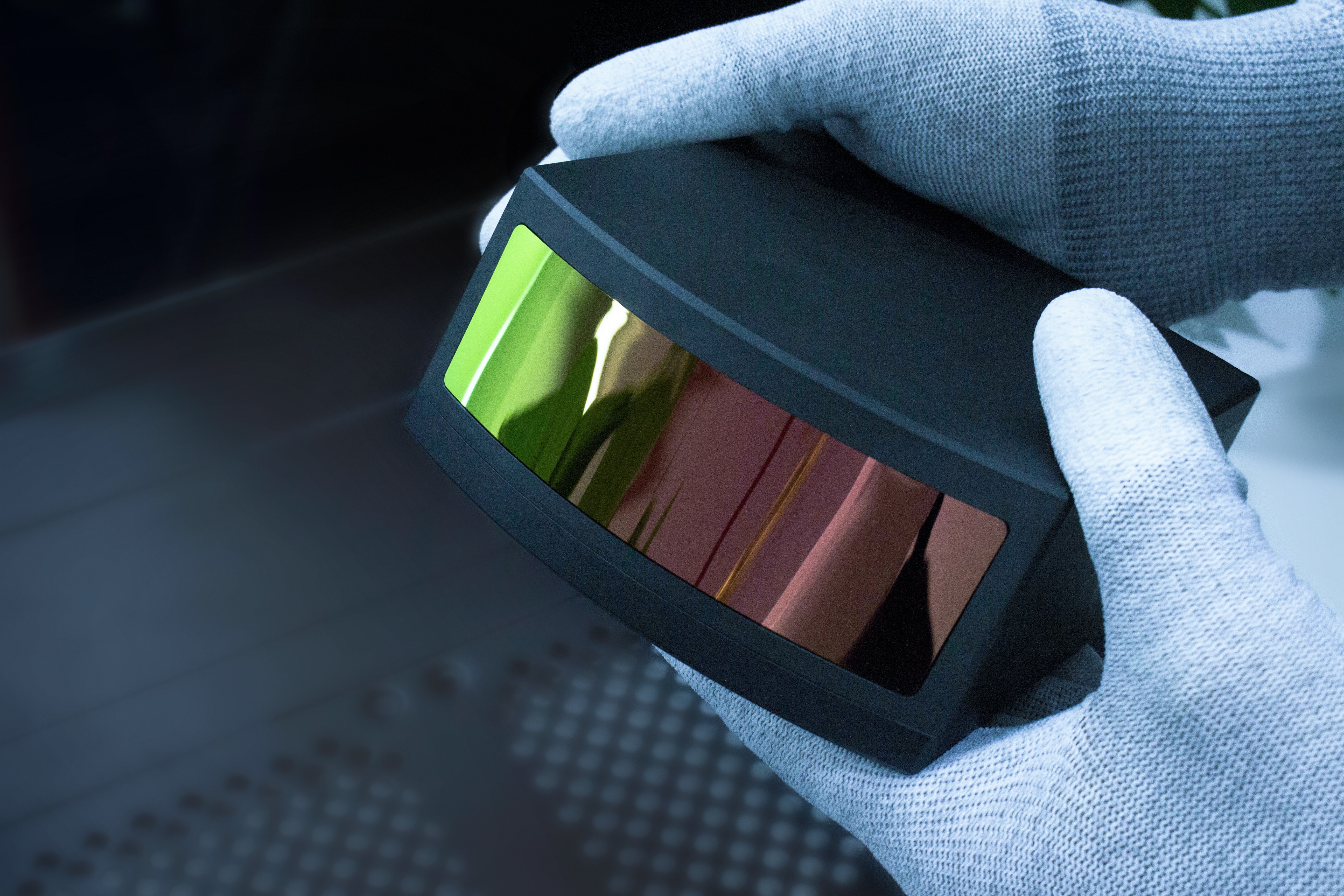RoboSense LiDAR partners with DT Mobile on V2I cooperation for smart cities

RoboSense has teamed up with DT Mobile to deploy the first Vehicle-to-Infrastructure (V2I) solution based on the MEMS solid-state LiDAR in Xiong’an New Area, Hebei, China. RoboSense is an autonomous driving LiDAR perception solution provider, and DT Mobile is a China-based communication equipment manufacturer.
This marks the start of MEMS solid-state LiDAR being used in V2I projects. Prior to this, there were several pilot projects of RoboSense LiDAR solution for V2I operating in Hangzhou, Shanghai, and Shenzhen. The RoboSense LiDAR developed according to the roadside perception needs of the V2I system, gives autonomous vehicles eyes from the sky to accurately sense every traffic participant, ensuring traffic safety and efficiency as well as information services applications.
Xiongan New Area in North China’s Hebei province is on the cusp of building a smart city with new technologies. Its first “5G and smart bus” V2I pilot project was jointly built by Hebei radio and television information network group (HBTN), China Communications Construction, and DT Mobile.

The HBTN is responsible for the deployment of the 5G network environment; China Communications Construction is in charge of the construction of the road infrastructure; DT Mobile manages the transformation of the vehicle end, C-V2X equipment, and end-to-end solutions, while RoboSense provides one-stop roadside LiDAR solution (including sensor hardware and perception algorithm software).
As the main hardware in the project, LiDAR breaks through the limitations of conventional sensors as cameras (easily affected by ambient light) or millimetre-wave radars (with low ranging accuracy). LiDAR can actively emit lasers to detect and collect 3D environment data in real-time with high ranging accuracy, adapting to different light environments and can operate24 hours a day. The RS-LiDAR-M1 is intelligent, low-cost, stable, and reliable, with a simplified structure and small size, which meets the needs of future mass deployment of 5G and V2I construction.
The RoboSense RS-LiDAR-Algorithms offer the V2I project with accurate and reliable perception and rich extended functions. Before RoboSense’s establishment in 2014, the founding team of RoboSense, including the founder Dr. Steve Qiu (Chunxin Qiu), has been developing point cloud perception algorithms for more than 7 years. To date, RoboSense has been cultivating in this field for more than 12 years.

The RS-LiDAR-Algorithms maintain high accuracy while ensuring a very high detection rate on road, which greatly improves the LiDAR’s perception ability, and adapt it to a variety of road, weather, and traffic conditions, not only in simple road conditions, such as highways, but also roads with complex challenges, such as intersections with Chinese characters during peak commuting hours and in dense traffic. The RS-LiDAR-Algorithms solve a large number of corner cases and ensures that all kinds of traffic participants are accurately detected even in extreme cases.
“We are very pleased that RoboSense and DT Mobile have reached strategic cooperation on V2I solution for 5G-based smart city development,” RoboSense COO Mark Qiu says. “In addition to increasing investment by combining both parties’ advantages, we will also vigorously carry out the test and verification of the solution to ensure the safety of autonomous driving applications, further advancing the development of the automotive industry with the new technology breakthroughs on the Vehicles-to-Internet.”
Comment on this article below or via Twitter @IoTGN
